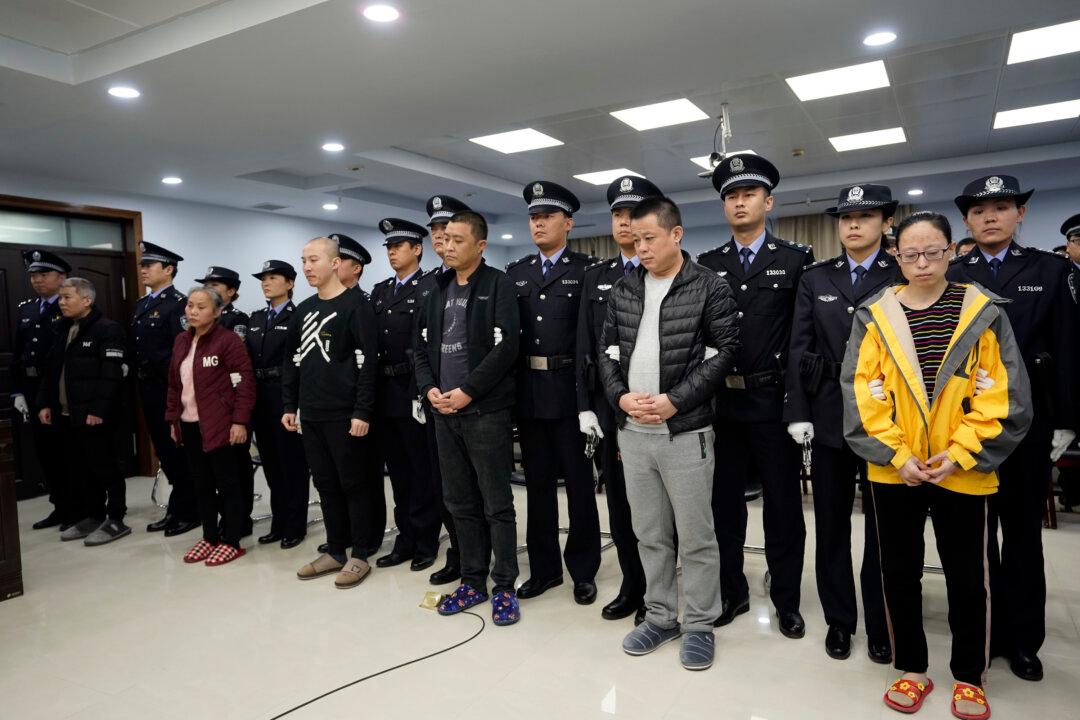XINGTAI, China—A Chinese court sentenced nine fentanyl traffickers on Nov. 7 in a case that is the culmination of a rare collaboration between Chinese and U.S. law enforcement to crack down on global networks that manufacture and distribute lethal synthetic opioids.
U.S. officials have been hopeful that China’s move earlier this year to outlaw unsanctioned distribution of all fentanyl-like drugs as a class will help constrain supply and make it easier to prosecute Chinese dealers.





